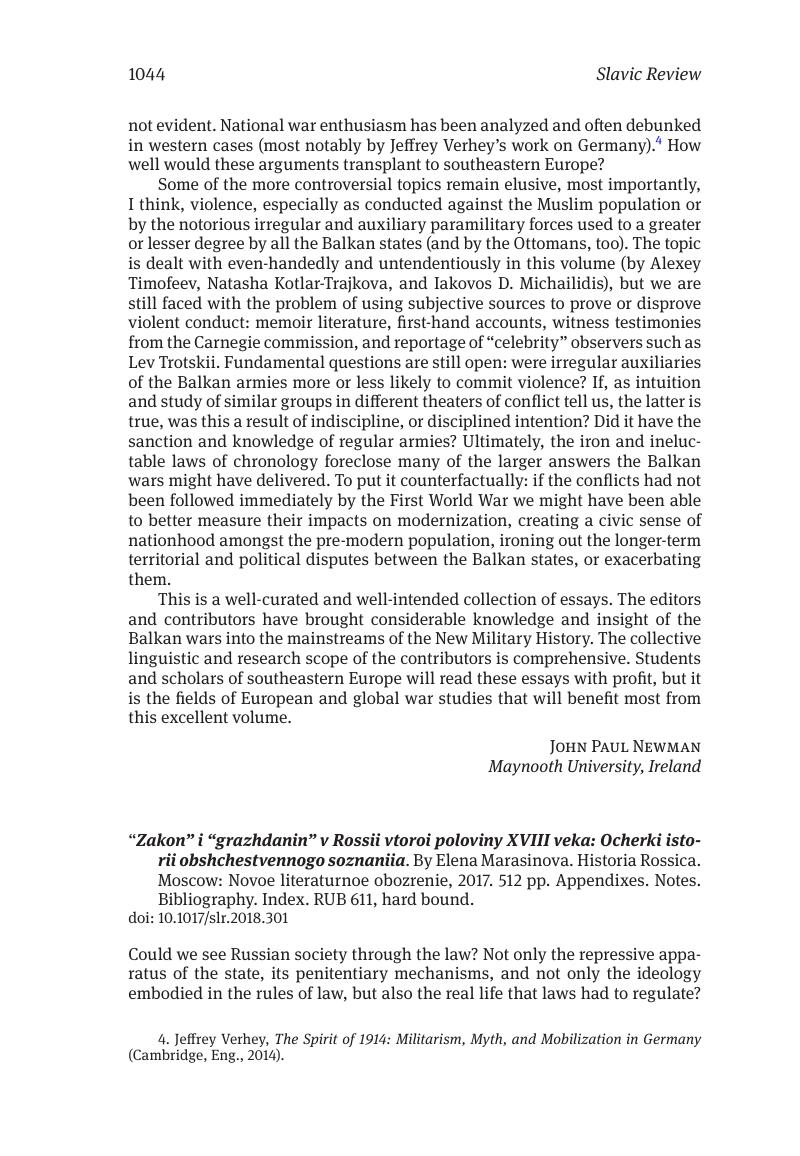No CrossRef data available.
Published online by Cambridge University Press: 12 February 2019

1. Foucault, Michel, Power / Knowledge: Selected Interviews and Other Writings 1972–1977, Gordon, Colin, ed. (New York, 1980), 99Google Scholar.
2. Milov, Lenonid, Velikorusskii pakhar΄ i osobennosti rossiikogo istoricheskogo protsessa (Moscow, 1998)Google Scholar.